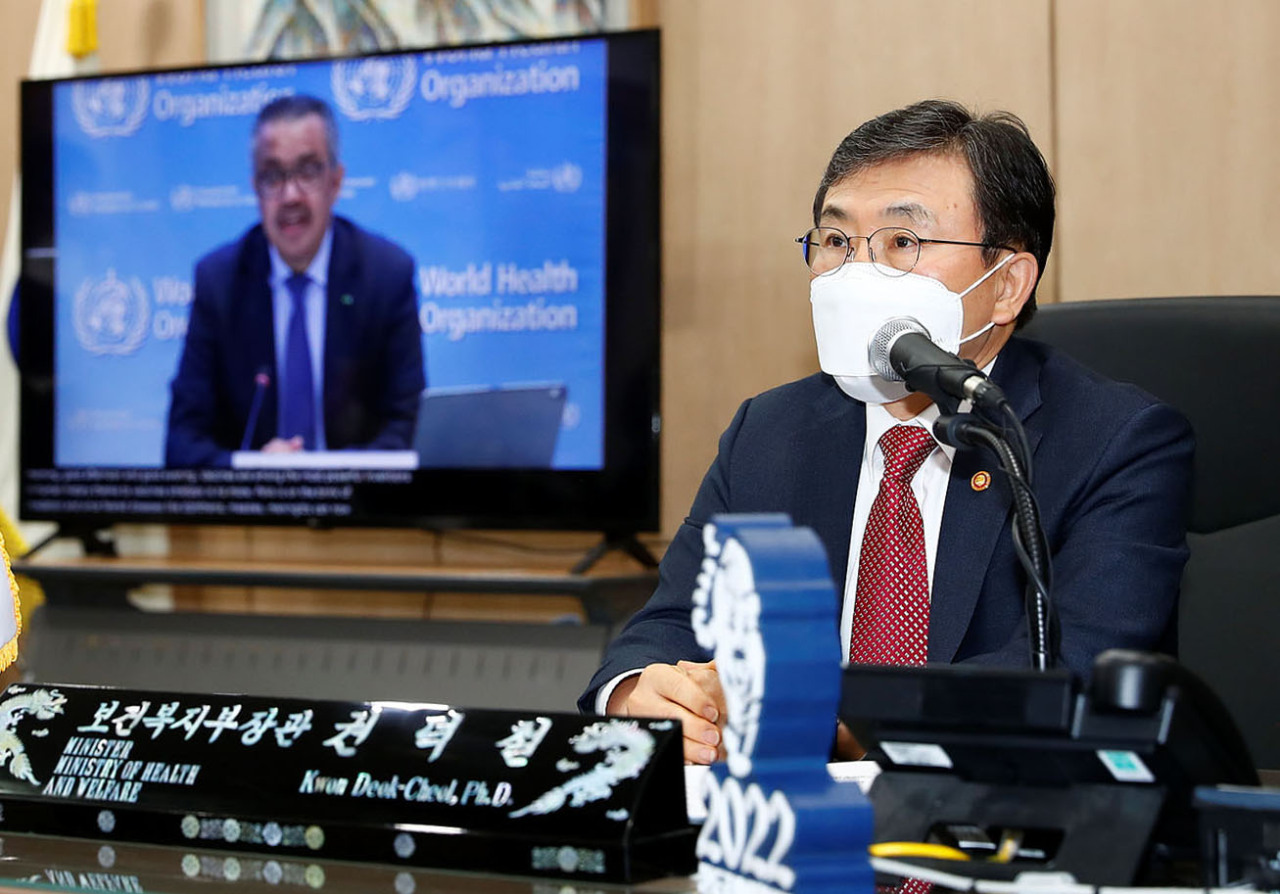WHO creates global training hub for vaccines, medicine in S. Korea
By Kim ArinPublished : Feb. 25, 2022 - 17:47

South Korea is providing training to poorer countries wishing to produce their own vaccines and treatments as the World Health Organization’s global training hub.
The country’s Ministry of Health and Welfare told reporters Friday the training hub has been established with the aim of combatting inequity in access to tools to combat health crises, including vaccines.
Health Minister Kwon Deok-cheol said in a statement that the South Korean training hub is part of the WHO plan to offset uneven distribution of pharmaceutical products, and that the country would “strive to enhance preparations for the next global public health crisis.”
“Sixty years ago South Korea was among the poorest countries in the world. Our strong public health system and bio industry owe to the help and support of the WHO and the international community,” he said.
“We cherish the opportunity for global solidarity. We’re committed to supporting low- to middle-income countries to boost local manufacturing capabilities and pave a safer way forward.”
Chief of the Health Ministry’s global vaccine hub office Lee Kang-ho said the government will be working with the WHO Academy and the Asian Development Bank to develop a comprehensive curriculum on general biomanufacturing.
For the training hub, the government has achieved a partnership with the International Vaccine Institute based in Seoul, local companies including Samsung Biologics, SK Bioscience and Celltrion, as well as universities and research institutions.
The first batch of 370 trainees will arrive in July this year, 60 of whom will be from the Asia-Pacific region.
WHO Director General Tedros Adhanom Ghebreyesus said Wednesday having a skilled workforce will ensure low- and middle-income countries “manufacture the health products they need at a good quality standard so that they no longer have to wait at the end of the queue.”
By Kim Arin (arin@heraldcorp.com)









![[Hello India] Hyundai Motor vows to boost 'clean mobility' in India](http://res.heraldm.com/phpwas/restmb_idxmake.php?idx=644&simg=/content/image/2024/04/25/20240425050672_0.jpg&u=)









